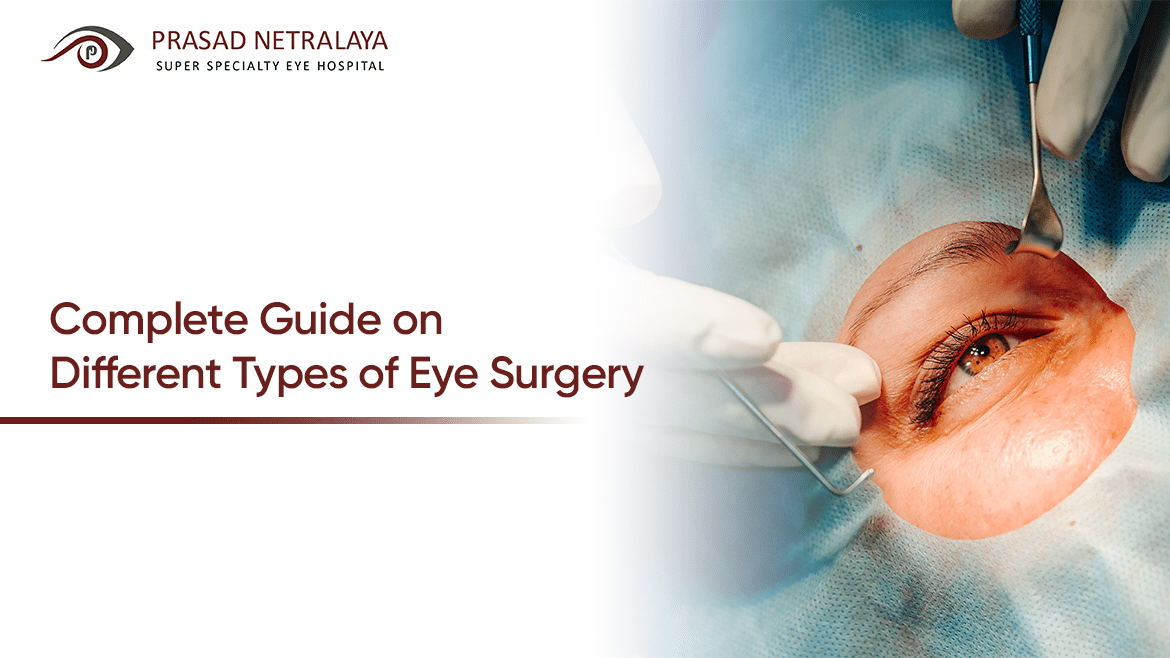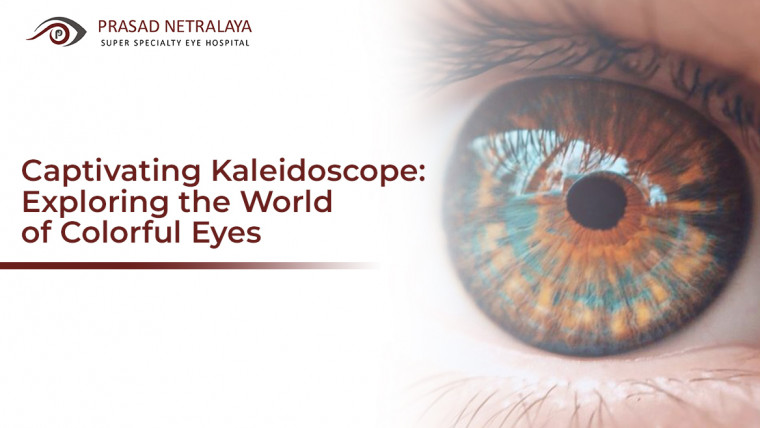While many of us take our vision for granted, some people are not so fortunate. A WHO report estimates that 246 million people around the world are visually impaired. According to some of the best eye surgeons we spoke to for this article, various types of eye treatment are available to treat a majority of these cases.
Eye surgery is one of them. It is important to realize, however, that eye surgery is a broad term since there are many types of eye operations.
This article will tell you what type of eye surgery is best for you and how to get it at one of the best eye clinics in India.
Table of Contents
Different Types of Eye Operation
Here is a list of the different types of eye operation.
1. Cataract Surgery
A cataract is a clouding of the eye’s lens that affects vision. It tends to be common in older adults.
While cataracts are most often associated with old age, they can occur at any age. Cataracts are not painful, but they cause blurred vision and, eventually, blindness.
Laser cataract surgery, as the name suggests, uses a laser—instead of a surgical blade—to make an incision on the cornea.
Also Read : 4 Things to Help You Find the Best Eye Hospital for Cataract Surgery
2. Corneal Surgery
The cornea is a dome-shaped, clear surface located on the front of the eye. By bending the light that enters the eye, it helps the eye focus.
In a healthy eye, the cornea has a smooth surface. However, when the cornea is damaged, it may become cloudy or uneven, resulting in impaired vision.
Corneal surgeries include:
- Corneal transplant surgery: It involves the replacement of a scarred/sick cornea with a normal one from a donor. An artificial cornea is used in keratoprosthesis procedures.
- Phototherapeutic keratectomy (PTK): This procedure uses a laser to remove scars, opacities, and dystrophies of the cornea.
- Pterygium excision: This procedure removes non-cancerous growths from the outer layer of the eye that grows onto the cornea through surgery.
3. Glaucoma Surgery
Glaucoma is an eye condition that damages the optic nerve, leading to vision loss and blindness. It is often caused by high pressure in the eye due to a build-up of fluid or from other health conditions.
There are various treatments available for glaucoma, depending on whether it is acute, chronic, or congenital.
Glaucoma surgeries include:
- Trabeculectomy: This procedure lowers eye pressure by opening a fluid channel.
- Trabeculoplasty: This is an open-angle glaucoma surgery that enlarges the drainage angle.
- Iridotomy: In this procedure, a tiny hole is created in the periphery of your iris to allow fluid to pass using a laser.
4. Corrective Surgery
If you have refractive errors such as astigmatism, nearsightedness, or farsightedness, you might opt for corrective eye surgery instead of wearing eyeglasses.
Let’s first define these conditions:
- Astigmatism: It is the imperfection in the curvature of the eye and causes blurred distance and near vision.
- Myopia or nearsightedness: Objects nearer to you are clearly visible, but far objects are blurry and hazy.
- Hyperopia or farsightedness: Objects away from you are clearly visible, but objects closer to you are blurry.
Corrective surgery alters the cornea’s refractive power, allowing the light to fall directly on the retina and not in front or behind it.
Types of corrective eye surgery include:
- Laser-assisted in situ keratomileusis (LASIK): LASIK is a simple and popular corrective surgery that takes about 15 minutes per eye. In most cases, you can return to work a day after the surgery.
- Photorefractive keratectomy (PRK): PRK is a form of laser refractive surgery that requires a longer recovery time than LASIK but costs less than LASIK.
- Small Incision Lenticule Extraction (SMILE): A new type of laser surgery for myopia correction.
- Implantable Collamer Lens : This is done for higher powers, which are not correctable by the Laser
5. Retinal Surgery
The retina is the layer of tissue at the back of the eye responsible for sensing light and transmitting images to the brain. It plays an important role in your vision.
Common retinal diseases include retinal tears, retinal detachment, and diabetic retinopathy.
Retinal surgeries include:
- Cryopexy: The treatment of retinal tears and other retinal conditions using extreme cold therapy or freezing.
- Scleral buckle: A surgery to correct a detached retina and restore vision.
- Laser photocoagulation: A surgical procedure used to treat age-related macular degeneration (AMD), which causes vision loss.
- Vitrectomy: This is performed when other treatments fail to control bleeding or fluid swelling.
6. Squint Surgery
Squint, or strabismus, is a condition that affects the muscles in the eye. It occurs when the muscles that control the eyes’ movement are not able to work together. This can cause the eye to turn in or out or move up or down.
Squint can be caused by many things, including an injury to the eye, a birth defect, or a disease.
There are two types of treatments to fix this issue:
- Vision therapy to strengthen the eye muscles.
- Strabismus surgery to improve the alignment and vision of the eye by loosening, tightening, or repositioning muscles around the eye.
7. Oculoplastic Surgery
This procedure aims to reconstruct the outer appearance of the eye as well as its accessory tissues and structures.
Oculoplastic surgeries include Blepharoplasty, the reconstruction of an eyelid that is droopy or does not close properly to improve the eye’s function and make it appear more youthful, and also to repair tear duct obstruction.
Best Eye Surgeons in India and the Types of Eye Operations They Perform
As a quality eye care provider in coastal Karnataka since 2002, Prasad Netralaya operates in Mangalore and Udupi.
This super-specialty eye hospital has some of the best eye surgeons who take full responsibility for their patients to ensure that they get the best eye care at a reasonable cost.
Find out how you can get top-quality eye care and services for a variety of eye-related problems by visiting their website.



